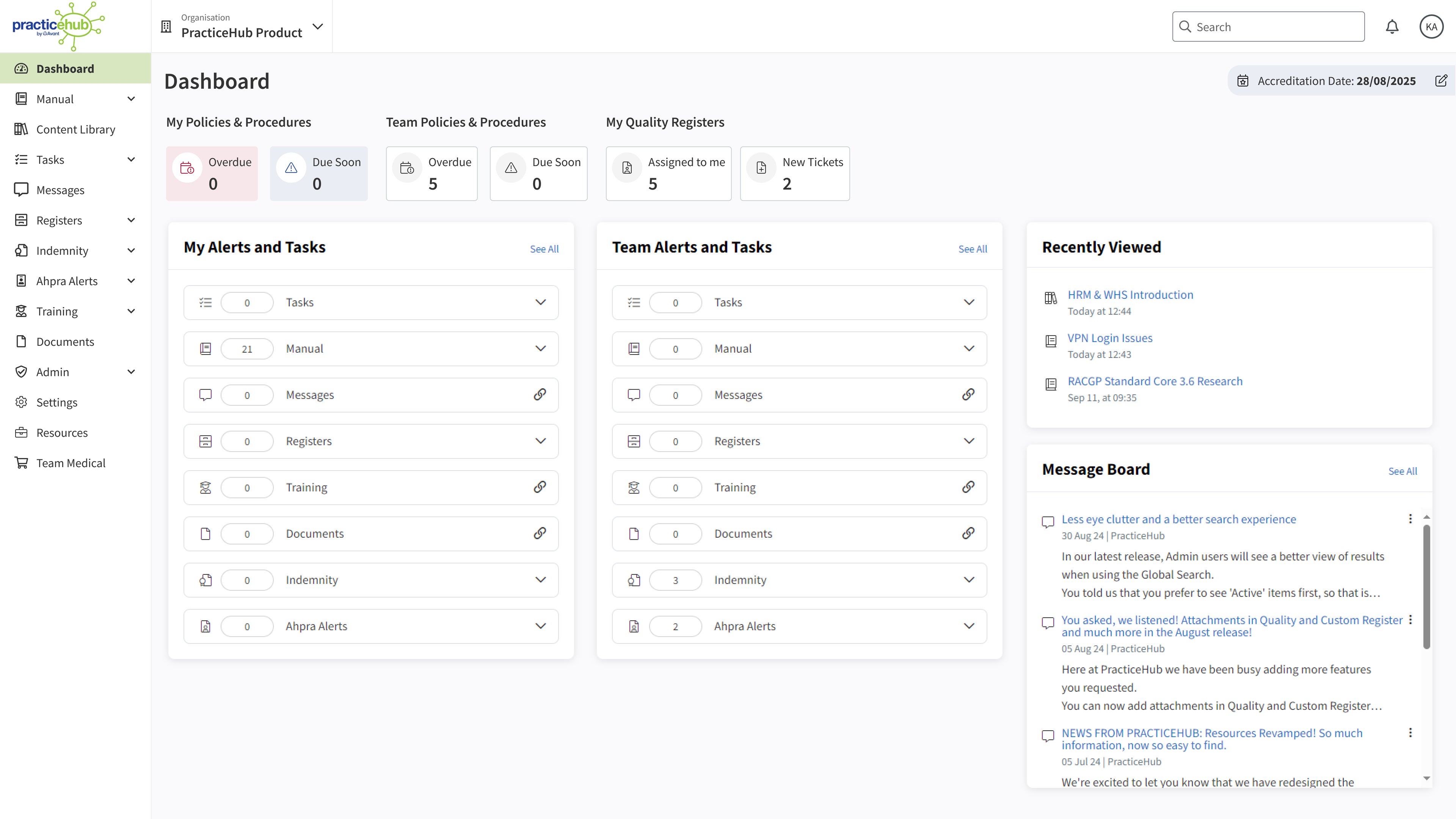
4 incident management pain points medical practice software helps solve
Sunday, 27 October 2024
If you’re reading this, you might be wondering how medical practice software can improve your incident management processes.
It may be that you’re using spreadsheets, word documents or simply paper to report incidents in your practice.
No one will argue these methods aren’t cost-effective, and that everyone in your practice knows how to use them.
However, they can come with a hidden cost. These manual systems are often notoriously time-consuming and frustrating for practice staff – and likely for you as practice manager.
The problem with manual incident reporting systems
When an incident occurs in your practice, how easy is it for your team to report it?
Think of all the time staff spend trying to find the right spreadsheet or document. Add to that the countless emails required to ensure proper incident follow-up.
Then, as practice manager, you probably find it hard to track who’s handling what and whether corrective actions are being followed through.
Without medical practice software, compliance is simply harder
If you’re a GP practice preparing for an RACGP assessment, things can get even more challenging.
Ask yourself: how much time will it take to organise all your spreadsheets and documents, so you can provide evidence of compliance?
While manual systems might seem cheap, they can possibly end up costing your practice more through delays, errors and missed follow-ups.
Worse, incidents could go unreported and unresolved, increasing the risk of recurrence.
How medical practice software can help
So, how can medical practice software help improve your incident management?
Before we get into the benefits, let’s talk about the elephant in the room: cost. While it’s true software comes at a price, think of it as an investment.
Take PracticeHub, for example. Its cost breaks down to probably less than what you would spend on your daily coffee. That small investment can help save your practice substantial time, reduce risk and ensure compliance.
Let’s look the biggest incident management pain points medical practice software like Practice can help solve:
1. Frustrating, time-consuming incident reporting
Imagine a nurse in your practice experiences a needlestick injury after a routine blood draw.
With a manual system, the nurse would need to spend time searching for the correct form or spreadsheet to report the incident. But even worse, how do you know the incident was even reported at all?
With PracticeHub, the nurse can immediately log the incident on their phone by scanning a QR code or using the platform to create a ‘ticket’ (see the image below). You and relevant team members are instantly notified, ensuring complete visibility of the incident without delay.

2. Improper follow-up of incidents
One major issue with manual systems is that incidents can easily fall through the cracks.
With medical practice software like PracticeHub, staff can easily record incidents while details are fresh, and reporting becomes a seamless part of everyday workflows.
Once an incident is logged, you can quickly assign tasks for corrective actions to team members and track progress via a centralised dashboard (see the image below) and instant alerts.
You can view a complete audit trail of all corrective actions in one place, and automatic notifications help ensure no follow-ups are missed – keeping everyone accountable and on track.

3. Medical practice software can help reduce errors and incomplete details
Manual systems can often lead to reports being lost or improperly filed, or details may simply not be included by staff.
Medical practice software like PracticeHub guide users through structured digital forms with helpful prompts, helping ensure incidents are reported using the same criteria.
The data is automatically stored in a centralised system so you can easily track and review incidents over time.
Ultimately, this helps avoid lost paperwork and provides access to comprehensive database to help spot incident trends and take proactive action.
4. The struggle of educating staff about safety and incidents
Staff training on crucial topics like risk management, infection control and work health and safety is not only critical for compliance, but also to reduce the risk of incidents.
Delivering this kind of training, however, can be an involved process for many practices, and with so many other tasks to take care of, you and your team likely have little time to spare.
Medical practice software like PracticeHub includes in-built training modules that allow you to assign training to team members and monitor their progress via automatic alerts.
The platform helps make it easy to deliver training while onboarding staff and assign refresher training later on. Staff can complete the training at their own pace, whenever is suitable for them.
Free eBook: Incident reporting and risk management simplified
Hopefully this article gave you an idea of the ways medical practice software can help improve your incident management processes.
Download our eBook to learn more about PracticeHub’s benefits – not only for risk and incident management, but also to help reduce admin and simplify compliance.
More ways we can help you
Persons implementing any recommendations contained in this publication must exercise their own independent skill or judgment or seek appropriate professional advice relevant to their own particular practice. Compliance with any recommendations will not in any way guarantee discharge of the duty of care owed to patients and others coming into contact with the health professional or practice. Avant and Avant Practice Solutions are not responsible to you or anyone else for any loss suffered in connection with the use of this information. Information is only current at the date initially published. © Avant Mutual Group Limited 2024.



